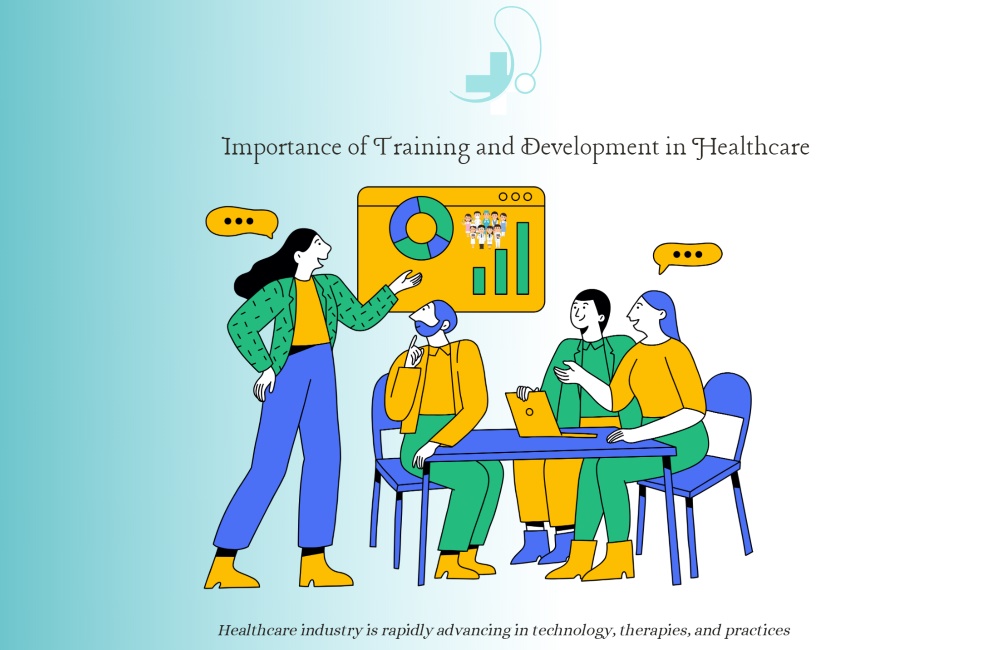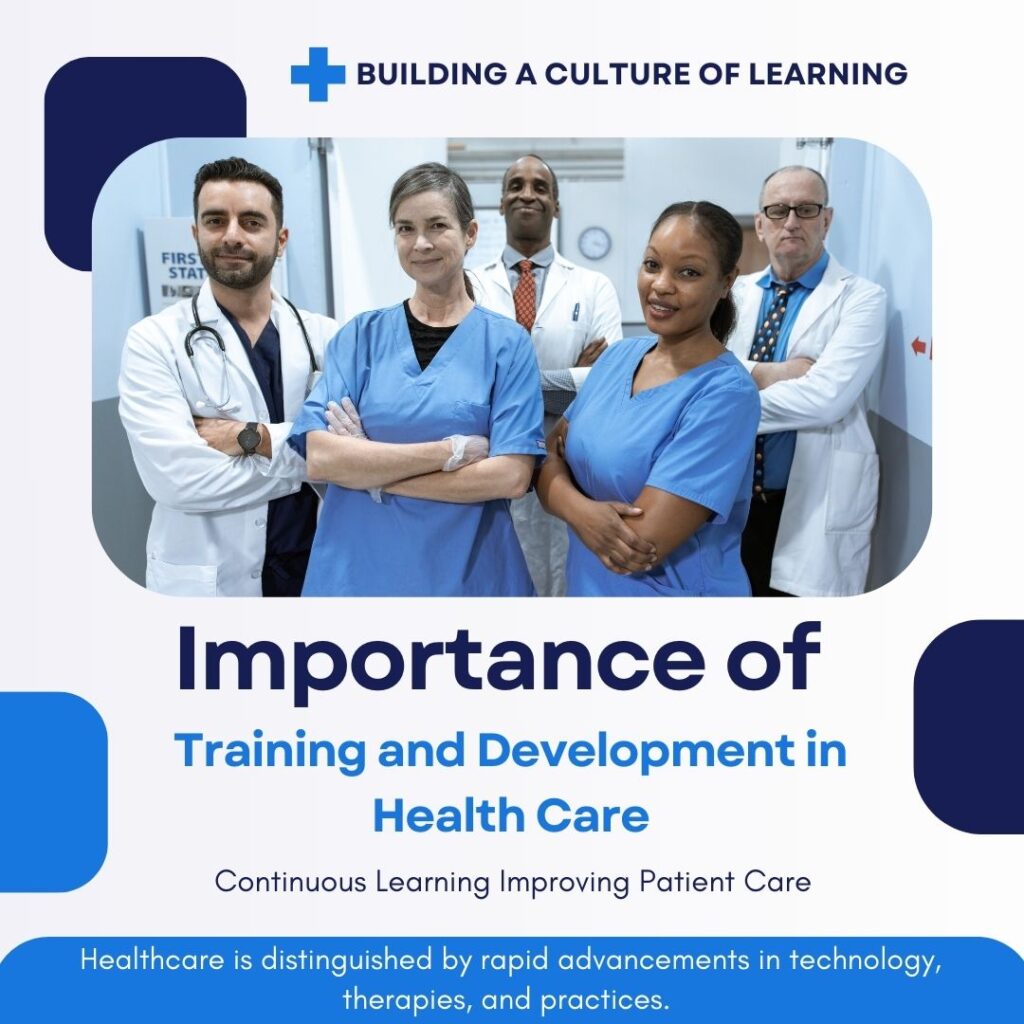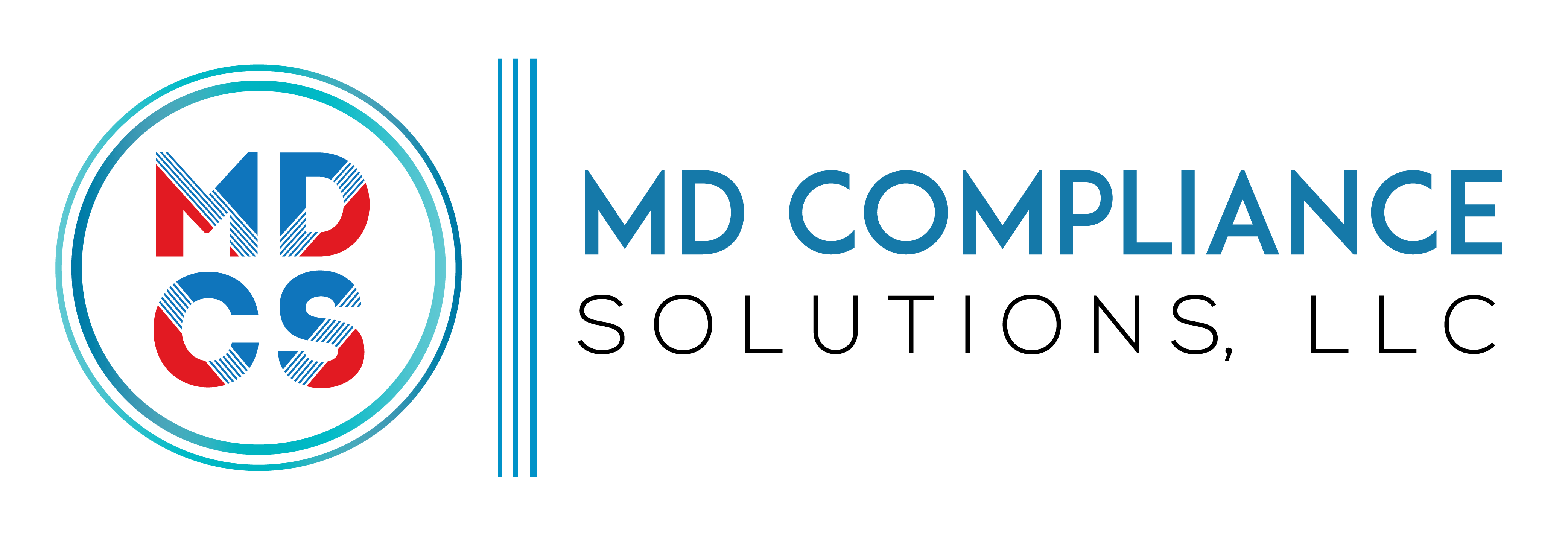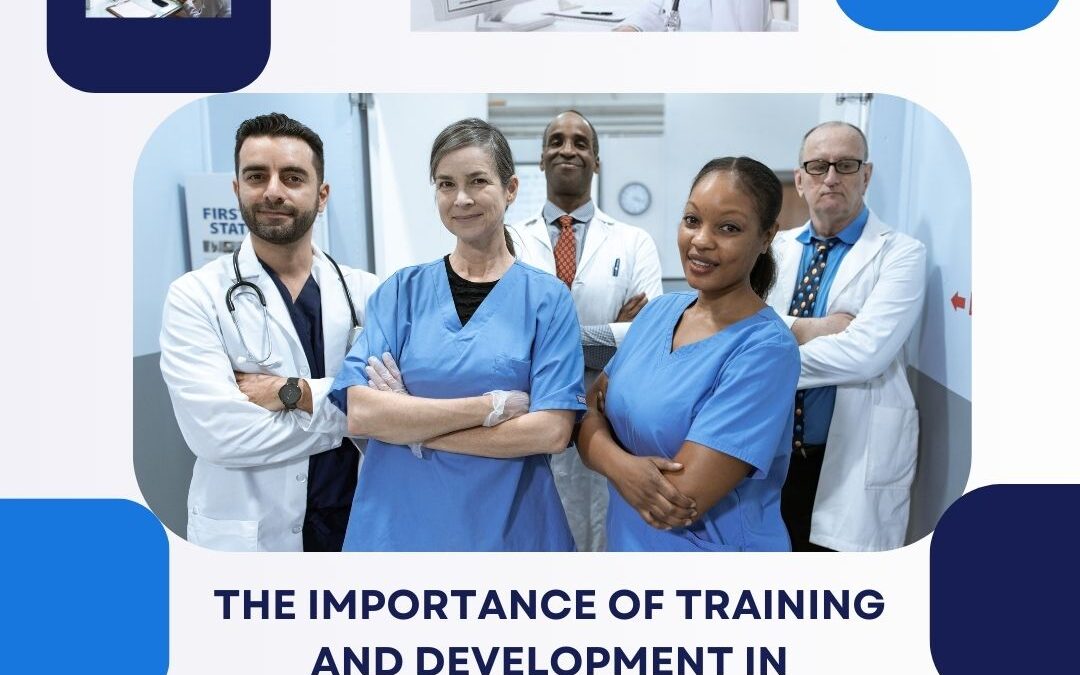Table of Contents
The importance of training and development in healthcare is very helpful to improve the quality of health services. The healthcare business is a dynamic and ever-changing field that emphasizes ongoing learning and career development. The healthcare industry is continually advancing, with new technologies and treatments being introduced day by day. As a result, hospitals must spend on staff training and development to ensure that they are up to date on the latest advancements and understand the complete range of services available. In this comprehensive guide, we will delve into the crucial role that training and development play in increasing employee happiness among healthcare workers.
Continuous Learning Improving Patient Care
The healthcare industry is rapidly advancing in technology, therapies, and practices. Continuous learning ensures that healthcare workers stay updated on the latest advancements, enhancing their confidence and competence. Well-trained workers deliver extraordinary performance and are more focused on valuable patient care. Employees who receive frequent training are more prepared to manage difficult cases, which leads to improved patient outcomes. Patients benefit from this in terms of both improved health outcomes and a better overall hospital experience, which raises patient satisfaction scores.
Opportunities for Professional Advancement
Like experts in any other field, healthcare workers looking to grow in their careers. Employers who offer their staff members clear career paths encourage them to perform well and stay dedicated to their positions. Offering possibilities for advancement attracts top personnel to healthcare firms, and is likely to choose companies that invest in their growth. When employees are trained in the latest technology and treatments, the hospital can provide those services to patients, broadening its range of services and possible revenue sources.
Employee Engagement and Satisfaction
Employees receive a signal from training and development programs that their professional growth and well-being are imperative. A greater sense of job satisfaction is a result of this appreciation. Professionals with training tend to have greater self-confidence in their skills, which enhances their job happiness. This reduces stress and creates a better working atmosphere, enhancing the employee’s self-confidence and daintiness. When employees have the opportunity to learn and grow, they are more likely to stay with the hospital long-term, lowering turnover and associated expenses.

Building a Culture of Learning
Establishing a learning culture requires robust leadership, who focus and engage in programs related to training and development to create a good example for the entire organization. Quality leadership motivates all other employees to follow in their footsteps., Therefore, promoting peer-to-peer learning among healthcare workers encourages cooperation and experience exchange. A more collaborative work atmosphere raises job satisfaction and happiness. Investing in hospital staff training and development on the available scope of services is critical for providing high-quality patient care, increasing efficiency and productivity, expanding services and revenue, ensuring compliance and accreditation, and retaining and recruiting top talent.
Allocate Resources for Patient Safety
Training and development programs reduce medical errors, a major healthcare concern. Improved patient safety is intimately related to healthcare employee satisfaction. In the healthcare profession, where the stakes are high and ongoing adaptation is critical, training and development are not only useful but also obligatory. Opportunities for frequent learning and career development significantly increase employee satisfaction among healthcare workers.
Hence, organizations realize the importance of training and development in healthcare, invest more in their staff to offer exceptional patient care and foster a pleasant work atmosphere in which employees feel valued, motivated, and engaged. This, in turn, results in increased job satisfaction, lower turnover rates, and better patient outcomes. As the healthcare landscape evolves, a commitment to training and development remains a critical component of success for corporations and their dedicated healthcare personnel.
Hospitals may boost productivity and efficiency by funding staff training and development. Employees who have received the appropriate training can perform their jobs more successfully and efficiently, which lowers the possibility of mistakes and delays.
Maintaining Compliance and Accreditation
Hospitals are subject to numerous regulations and procedures, and staff personnel must understand and follow these policies. By investing in staff training and development, hospitals can guarantee that their employees are aware of and capable of complying with these standards. This not only helps the hospital stay compliant, but it also protects its accreditation and reputation as a high-quality healthcare provider.
Read More: The Ultimate Guide to Medical Billing Audits


